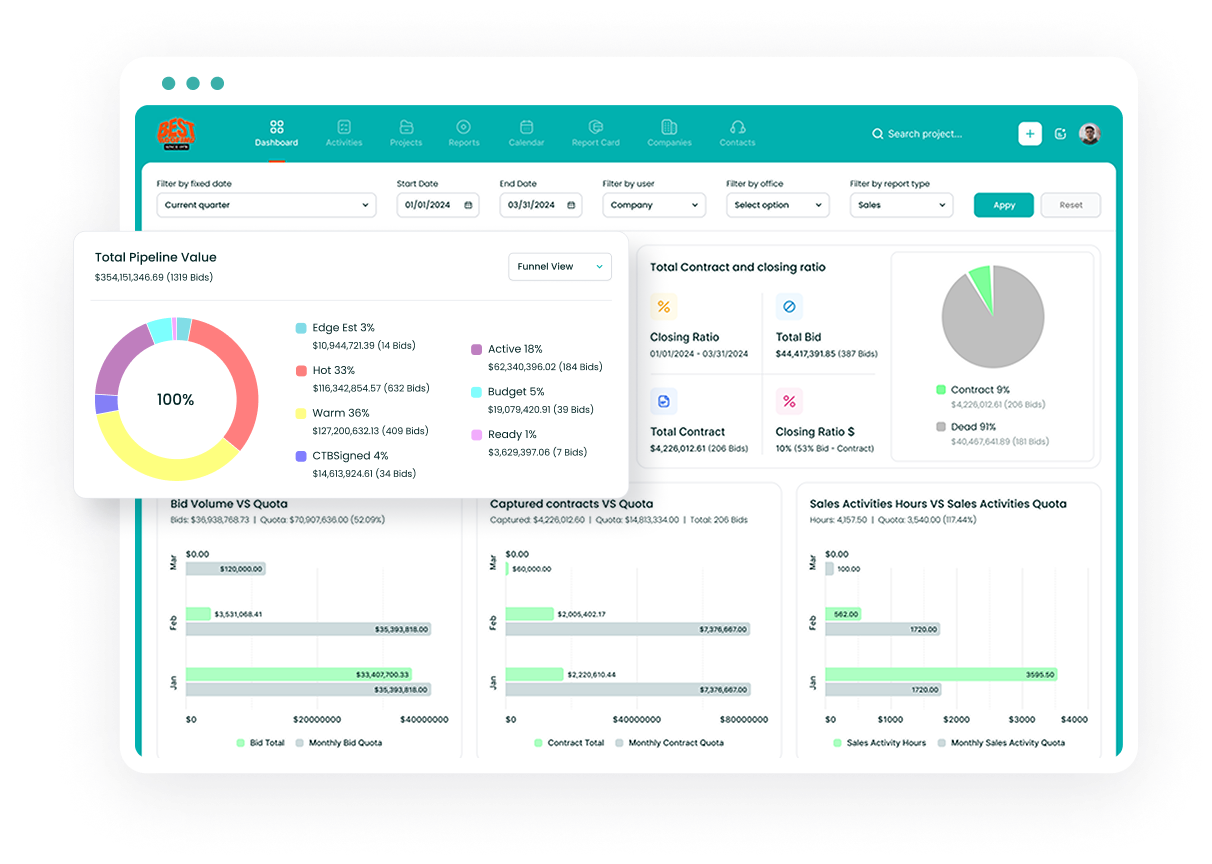What Factors Affect a Construction Sales Pipeline's Health?
Many factors play a role in keeping your sales pipeline in tip-top shape, but the most common ones to consider are those that, like the proverbial bad apple, will damage the rest of your pipeline if left unchecked. Keep these key components in mind when evaluating your pipeline to ensure it stays clean.
The first to consider is the length of the sales cycle. In construction, this cycle can be particularly long due to the complexity of projects and the need to coordinate with multiple stakeholders. It's important to have a clear understanding of each stage of the sales cycle, including lead generation, lead nurturing, proposal development, and closing the deal.
Another key factor in creating a healthy sales pipeline is lead tracking. This involves keeping detailed records of all potential clients and their progress through the sales cycle. By tracking leads, you can identify areas where the sales process may be getting stuck and make adjustments to improve the overall process.
Data management is critical to ensuring a healthy sales pipeline. By keeping detailed records of all sales-related activities, you can identify patterns that can help you improve your sales process over time. Prioritize tracking the success rate of your sales efforts and analyzing customer feedback, and monitor the performance of individual sales team members.
How a CRM Can Make Your Sales Pipeline Healthier
A CRM, or Customer Relationship Management, system can be a game-changer when it comes to managing your construction sales pipeline. By using a CRM, you can keep track of your leads, monitor where they are in the sales process, and ensure that you are providing them with the right information at the right time.
One of the biggest benefits of using a CRM is that it can help you identify potential issues with your sales pipeline early on. For example, if you notice that a large number of leads are dropping out at a particular stage in the process, you can investigate why this might be happening and make changes to improve your conversion rates.
Another advantage of using a CRM is that it can help you stay organized. Instead of relying on spreadsheets or other manual systems, a CRM can provide you with a centralized platform where you can manage all of your leads, track their progress through the sales funnel, and automate tasks like follow-ups to nudge leads along in the sales process.
Overall, using a CRM can help make your sales pipeline healthier by providing you with better visibility into the sales process, helping you stay organized, and automating many of the tasks involved in managing your leads.
The Bottom Line
By keeping key factors in check and by implementing a CRM to stay organized, construction companies can achieve a healthy sales pipeline with a high success rate and minimal no-shows. When construction companies track leads, manage data, and improve processes, they can effectively manage their sales pipeline and grow their business over time.
If you're interested in learning more about how Followup CRM's construction-specific features can help your business improve its sales pipeline health and win more projects, schedule a live demo now.


